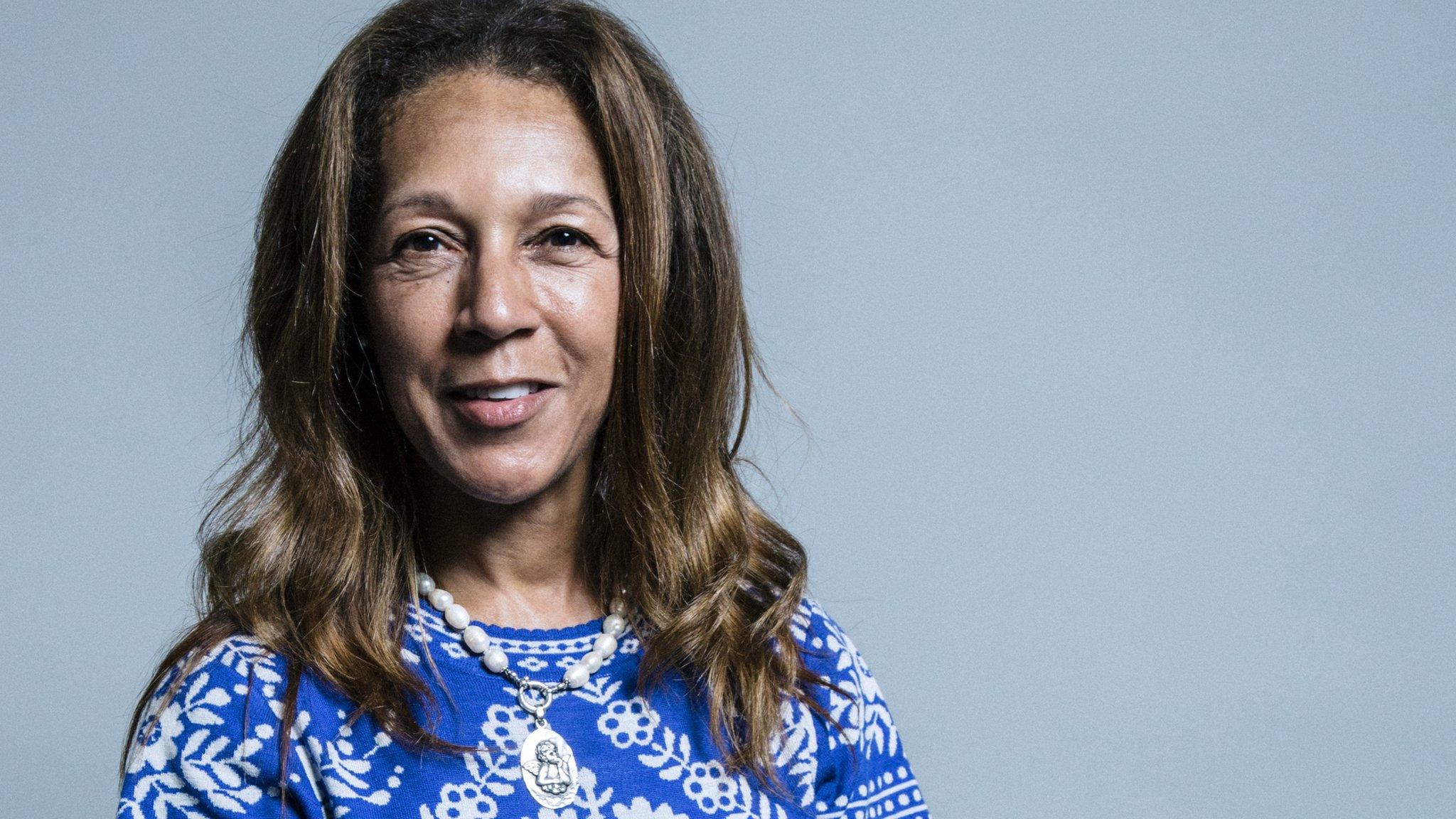The week ahead in Parliament
- Published
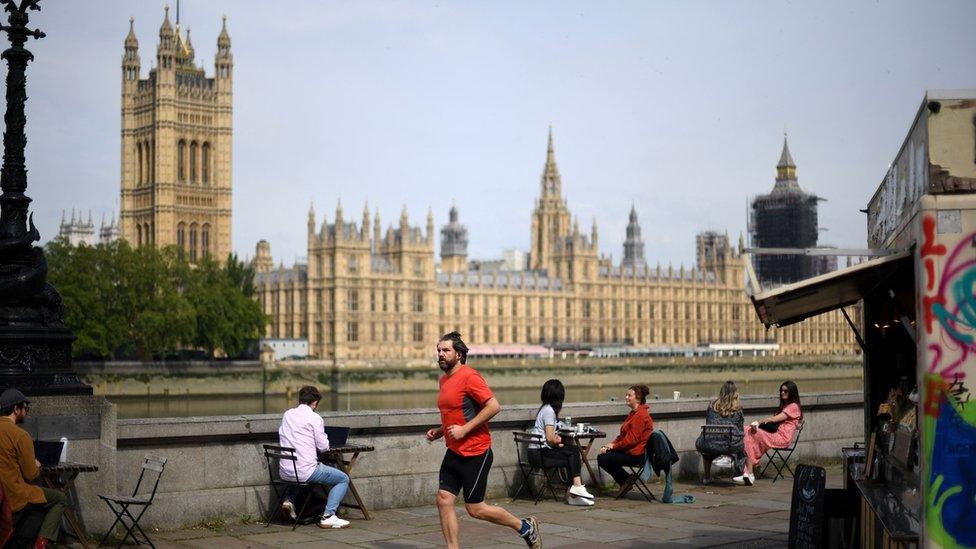
It's the week when the government has to announce whether it intends to lift most Covid restrictions on 21 June.
This brings the prospect of considerable dissent, if ministers take a cautious line.
Expect a major statement, probably from the PM, and plenty of intense questioning from increasingly restive sceptics about the need for social distancing.
Elsewhere, there are plenty of simmering sub-plots in Parliament. What will the aid rebels, frustrated at the blocking of their attempt to restore UK aid spending last week, do next?
How will the election to one of the most powerful backbench posts, the chair of the Conservative 1922 Committee, evolve?
Will one of the challengers to incumbent Sir Graham Brady withdraw, in order to give the other a better chance of supplanting him?
Then there's the latest clutch of private members' bills - on Wednesday, MPs who won priority to propose their own law will have to announce the title of their bill and present it to the Commons.
A couple of hands have already been shown - Labour's Chris Bryant is planning to use his bill (at the lower end of the priority list) to pursue his long-running campaign on brain injury.
And the former shadow cabinet member Barry Gardiner is planning a bill to outlaw "fire and rehire" tactics used by some employers to drive down pay and conditions.
I'm told there will be a lobby to launch his bill on Wednesday. There's also talk of a possible bill on the rights of expatriate Scots to vote in a future independence referendum - which could get pretty lively. Watch this space.
Monday 14 June
The Commons week opens (14:30 BST) with questions to Housing Secretary Robert Jenrick and his team. This is usually followed by a clutch of government statements and urgent questions.
The main legislative action is the second reading of the National Insurance Contributions Bill, which introduces relief on employers' contributions for employees in England's new freeports, and on employees who are armed forces veterans, during their first year of civilian employment.
It also creates an exemption for Covid-19 Test and Trace Support Payments for Class 4 and Class 2 NICs, which are paid by the self-employed.
Monday is petitions day in Westminster Hall, and the Petitions Committee has scheduled debates on two petitions on Israel and Palestine (16:30).
The first of these calls for the UK government to formally recognise Palestine as a state, arguing this would protect Palestinians from persecution.
The second calls for sanctions against Israel, and in particular an end to arms sales. James Cleverly, Minister for Middle East and North Africa, will respond on behalf of the government.
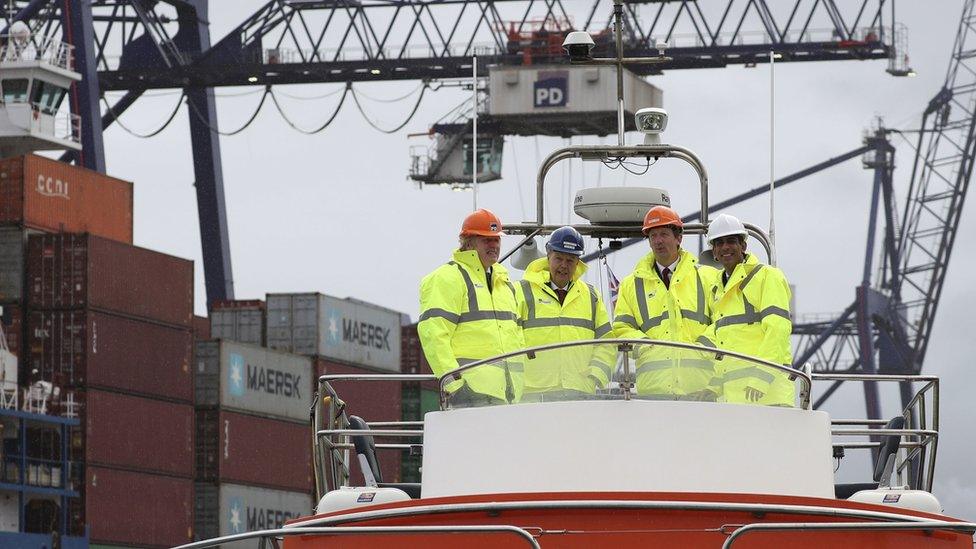
Boris Johnson visited Teesport after it was announced as a freeport site earlier this year
From 18.15, MPs will then debate two petitions on football governance.
Then first calls for a German-style 50 per cent +1 rule to give fans majority ownership of professional football clubs in the UK. The second calls for the introduction of an independent regulator for the game in England by December 2021.
On the committee corridor, Treasury (15:30) has an evidence session on economic crime, with witnesses from the Financial Conduct Authority, HM Revenue & Customs, the Payment Services Regulator, the Fraud Investigation Service, and Companies House.
In the Lords (13:00), questions to ministers range across proof of vaccination, the safety of Covid vaccines for pregnant women, and a possible inquiry into the constitution.
The main event is the second day of committee scrutiny of the Professional Qualifications Bill, a Brexit measure to provide a new framework for recognition of professional qualifications.
Tuesday 15 June
MPs begin their day (11:30) with Foreign Office questions.
The main debate is on the second reading of the Rating (Coronavirus) and Directors Disqualification (Dissolved Companies) Bill.
This deals with the impact of the coronavirus pandemic on business rates, and also makes it easier for the government to investigate misconduct by directors of dissolved companies.
If the Insolvency Service is satisfied that the conduct of a director of a dissolved company demonstrates they are unfit to be involved in its management, it can seek a disqualification order against them without having to go through the time-consuming process of restoring the company.
The bill is intended to have retrospective effect, so it can be applied to companies that were dissolved prior to the legislation coming into force, and therefore cover companies inappropriately wound up after receiving Covid Bounce Back loans.
What's the collective noun for a group of past and present directors-general of the BBC?
When the Digital, Culture Media and Sport Committee (from 10:00) questions former BBC DGs Lord Hall and Lord Birt and the current incumbent, Tim Davie, about events leading up to Panorama's landmark interview with the late Diana, Princess of Wales, and the broadcaster's handling of investigations into how reporter Martin Bashir obtained it, the answer will probably be "a lamentation."
In other committee action, Transport (09:30) looks at the international legal implications of Belarus's recent decision to intercept a Ryanair flight over its airspace and force it to divert to its capital of Minsk. Soon after its landing, Belarus arrested dissident journalist Roman Protasevich, who was onboard.
Witnesses include Michael O'Leary, Ryanair's chief executive, and Aviation Minister Robert Courts. That's followed up by Foreign Affairs, who'll be looking at the wider implications of the action, and the problem of containing rogue states.
Environment, Food and Rural Affairs (14:30) will explore existing targets for tree planting and woodland creation, and the financial incentives and forestry approval processes for increasing tree numbers in England.
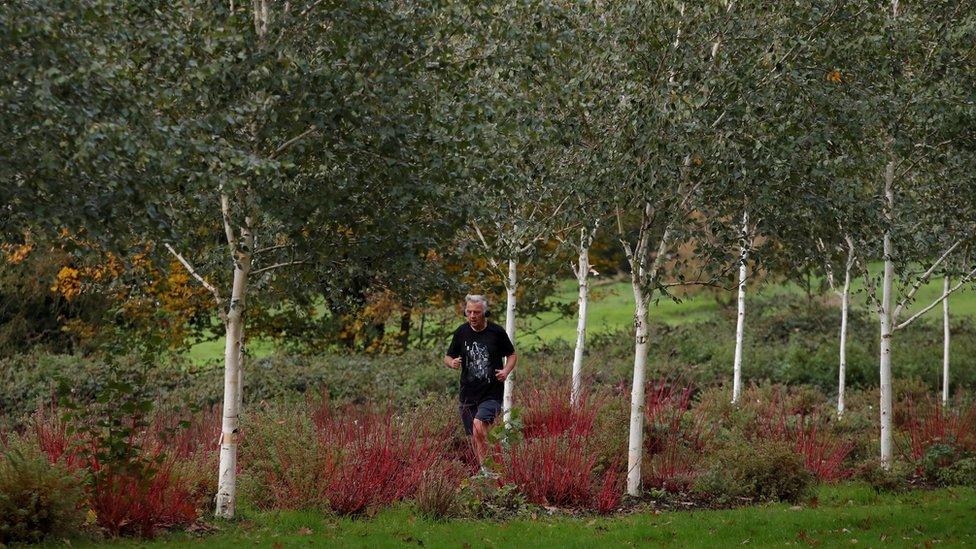
The UK has a target of planting 50 million more trees by 2025 to combat climate change
In the Lords (12:00), ministers field questions on specialist support for children with genetic conditions, allowing private tenants to keep pets, and support for service personnel returning to civilian life.
The main debate is the second reading of the Skills and Post-16 Education Bill, which aims to offer adults the opportunity to retrain throughout their lives and open up further job opportunities.
This may include a lifetime loan entitlement (LLE), with amendments being added at committee stage in the Lords, subject to a government consultation over the summer, with a view to introducing the LLE in 2025.
The bill would also reconfigure the training system around the needs of employers, so that people are trained for skills in short supply or needed in the future, such as in construction, digital, clean energy and manufacturing.
Wednesday 16 June
The Commons day opens (11:30) with half an hour of Northern Ireland questions, followed by Prime Minister's Questions at noon.
Then comes the ritual presentation of the new crop of private members' bills. At this stage, they do not have to be fully-formed legislation, but the MPs who won a place in last month's bill ballot do have to state the title of their chosen measure.
The main debate will be on an opposition motion, to be announced.
In Westminster Hall, there are debates on decarbonising transport (09:25), reforming the law on mental health (11:00), and children and young people's mental health (14:30).
Committee action includes Science and Technology (09:30) looking at the UK's science capability and its influence during pandemics.
The Transport Committee (09:30) continues its inquiry into the rollout of so-called smart motorways, with a series of expert witnesses.
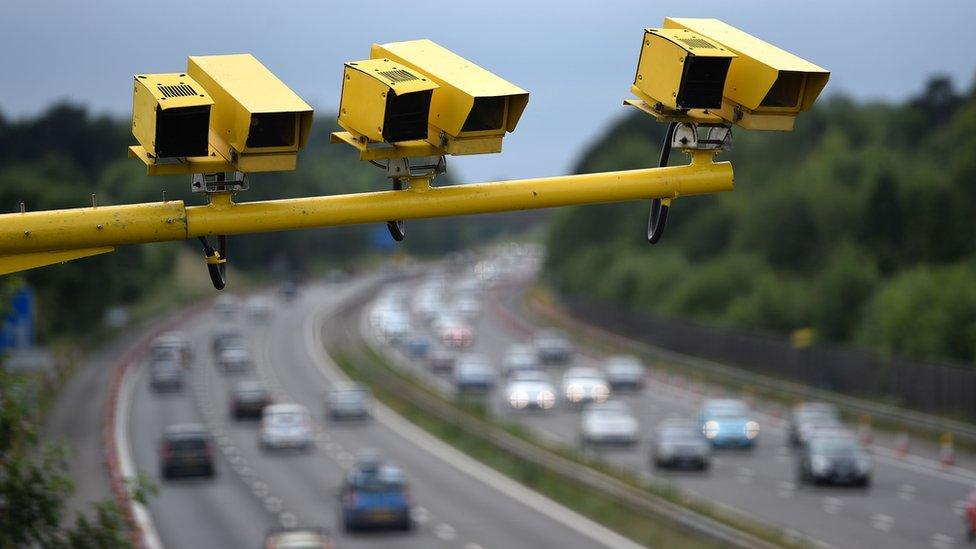
Smart motorways use technology and other measures to cut congestion, such as opening the hard shoulder
In the Lords (12:00), ministers face questions on the sustainability of the fishing industry, and the online abuse of public representatives.
Then, peers turn to the second reading debate on one of the government's flagship animal welfare measures, the Animal Welfare (Sentience) Bill.
This would recognise animals as sentient beings for the first time, and create a new committee of animal experts to ensure animal sentience is taken into account when developing government policy. This replaces obligations under EU legislation.
Thursday 17 June
Commons business begins (09:30) with forty minutes of Environment, Food and Rural Affairs questions, followed by mini-question times for the MPs who speak for the Church Commissioners, the Parliamentary Works Sponsor Body, the Public Accounts Committee, and the Speaker's Committee on the Electoral Commission.
And then there's the Leader of the House's weekly statement on forthcoming Commons business.
The rest of the agenda has been set by the Backbench Business Committee, starting with a debate on a Housing Committee report on planned changes to England's planning system.
Then come general debates on the Misuse of Drugs Act, and the UK's Preventing Sexual Violence in Conflict initiative at the G7.
In Westminster Hall, there are two more Backbench Business Committee debates: the first on the value of vitamin D as a defence against Covid-19 infection, and the second on the performance of Royal Mail.
Committee action includes Public Accounts (09:30) quizzing senior civil servants on DWP Employment Support. Meanwhile, Welsh Affairs 09:30) quizzes Welsh Secretary Simon Hart.
In the Lords (12:00), there are questions on public support for changes in the planning rules for new housing, and when it became government policy to test people being moved from hospitals to care homes for Covid.
The main debate - led by former education secretary and Labour peer Baroness Morris of Yardley - is on support for children whose education has been hit by the pandemic.
Neither House is due to sit on Friday 18 June.
Related topics
- Published20 May 2021

- Attribution
- Published26 January 2021
